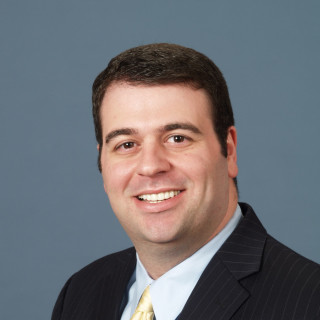
Why do we still learn psychotherapy as part of our psychiatry residency training? Other than having a basic understanding of various talk therapy modalities and their evidence-based uses so we can prescribe them appropriately, should this training really be mandatory?
This is an old debate within the field of psychiatry and, at least for the time being, seems to have been settled in favor of keeping psychotherapy in the curriculum. At least, I’m unaware of any major movement to eliminate or substantially scale back this element of psychiatric training.
Psychiatrists and some psychiatry residents who favor its mandatory status in residency curricula may claim that, prima facie, psychiatrists aren’t psychiatrists without a firm foundation of psychotherapy knowledge and practice (i.e., the ghost of Freud). They may further claim — without any firm evidence I’m aware of — that such training is necessary to give the psychiatric resident ways of understanding people at a level different from the neurobiological. But I can’t help but feel this is mostly nostalgia for a bygone era of couch-bound patients and bearded psychiatrists supposedly expert in all aspects of human behavior, still trumpeted by depictions in movies and television.
One must always bear in mind that it isn’t socially acceptable in psychiatric circles to call for the abolishment of psychotherapeutic training, lest one be labeled a “biochemical reductionist” or some similar name. As if the acknowledgement in modern times that physical and chemical laws govern the brain and behavior should be considered a bad thing. Any vocalization that the biological aspects of psychiatry are now more important than the psychological ones is met with a near-universal chiding.
Further, given that training program directors are likely to believe — or, at least, pay lip service to the belief — that a strong foundation in psychotherapy is essential, it may be virtually impossible for a medical student to gain admission to many psychiatry residency programs unless they say they agree. So, while of course there are psychiatrists and residents who enthusiastically desire to practice therapy and strongly feel it should remain mandatory in training, there are also compelling reasons to believe that residents who disagree with the need for psychotherapy training are the silent majority.
The vast number of psychiatrists no longer practice psychotherapy, and the percentage that do seems to shrink annually. In fact, only around 11% of outpatient psychiatrists continue to practice psychotherapy extensively after residency. Many say that financial incentives that favor medication management over psychotherapy are leading psychiatrists away from psychotherapy. That undoubtedly covers some percentage of psychiatrists. However, if psychiatrists were only interested in maximizing income, they could have chosen almost any other specialty, nearly all of which are more highly compensated. They also could choose to work more hours than they do or take less vacation — yet they don’t. Something else is driving the changing tide, and a good bet would be that a substantial number of incoming residents are far less interested in psychotherapy than they claim to be.
And here’s the most important part: every moment spent on psychotherapy training is less time spent learning other skills. While basic science and biological psychiatric knowledge have accumulated at a rapid pace of late, the length of psychiatry residency training has not increased. The result is woefully undertrained psychiatric diagnosticians and psychopharmacologists.
Psychiatry residents typically attend several year-long didactic courses on psychotherapy throughout all four years of their residency. Additionally, during their outpatient training, they spend substantial time practicing psychotherapy. Yet they don’t get nearly enough training or practice in basic neuroscience, internal medicine, neurology, endocrinology, rheumatology, immunology, or statistics. Indeed, there’s an unfortunate but widespread opinion amongst many medical practitioners of other specialties that psychiatrists aren’t “real” doctors. Unfortunately, the minimal training psychiatry residents get in other fields of medicine leaves them with little ability or opportunity to disabuse fellow physicians of this notion.
Though it would be ludicrous to expect psychiatrists to have the same grounding in general medicine as someone who specializes in, say, internal medicine, it’s regrettable most psychiatric residents aren’t sufficiently trained that they feel confident in treating common metabolic conditions, such as non-insulin dependent diabetes mellitus or hypertension. This is particularly important because our own medications are so often contributive to, or even causative of, these conditions.
Psychiatrists should also be the leading experts on medical mimics of psychiatric conditions, of which there are many. Yet — again, due to lack of training — psychiatrists miss these all too often, even in the field of consultation-liaison psychiatry. Limited training in statistics and evidence-based medicine often leaves psychiatrists incapable of — and, consequently, often uninterested in — evaluating scientific articles on their own.
At the end of the day, this is a zero-sum game. Every minute spent learning about and practicing psychotherapy is one less minute spent learning about other pursuits. And this is much more than an academic exercise, so to speak. For the benefit of our patients, it behooves us to train psychiatric residents not in what is most interesting to a vocal subset of the field but, rather, in the skills they will actually be using on a day-to-day basis.
None of this is to say that psychotherapy doesn’t have its place as a treatment and can’t be enormously beneficial. For some mental illnesses, in fact, it is the only appropriate treatment. As such, I would advocate that psychiatry residents continue to learn the basic form and function of psychotherapies and their appropriate, evidence-based applications so that they can prescribe them when needed.
The educational portion of the psychotherapeutic curriculum needn’t be eliminated entirely, but it should be substantially curtailed. The practice of residents maintaining a full slate of psychotherapy patients during the third year of residency, however, should be eliminated entirely. Appropriate therapeutic interactions with patients can be modeled by supervisors and practiced by residents during diagnostic interviews and medication management visits during all years of residency.
It’s vital to note that there are many others who can perform psychotherapy, such as licensed counselors, social workers, and clinical psychologists. But, with proper training, there is no other professional that can do what a psychiatrist can in terms of accurate diagnosis of mental illness (including catching medical mimics), proper prescribing of psychopharmacological agents or other biological treatments, and the management of side effects therefrom.
Psychiatrists are medical doctors with an unlimited license to practice medicine. As such, they are free to practice psychotherapy if they so choose, even if traditional residency psychotherapy training is curtailed or eliminated. They could obtain additional training, if interested, during elective time in their fourth year of residency, or as part of a new one-year fellowship program focusing exclusively on psychotherapy. But there’s no need for the majority of future psychiatrists to forfeit valuable time learning other useful, more practical skills for the benefit of the increasingly small number of those who want to practice psychotherapy.
There are a limited number of psychiatrists being trained in any given year. They deserve to be given the best and most-relevant training possible, for their benefit and the benefit of their future patients.

Jeffrey A. Vernon, DO, is a New York City-based psychiatrist with an interest in treatment-resistant mental illness. He has published research on schizophrenia and is a 2017–2018 Doximity Fellow. He can be reached at drjeffreyvernon@gmail.com.






